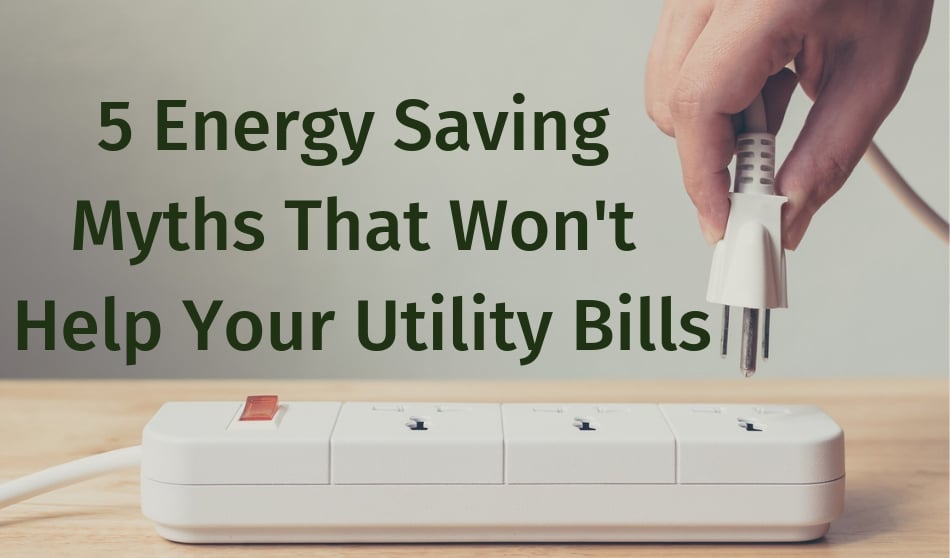
With all of this content competing for your attention, how do you separate truth from myth? If you’re going to invest in renovations to your property, you need more than anecdotal evidence. You need concrete facts founded on research and statistics.
We’ll review some common misconceptions you might have seen floating around the web. As you continue to browse sites for money-saving strategies, keep these five myths in mind.
1. Cleaning the Coils in Your Refrigerator Saves Energy
The logic behind this suggestion is pretty sound. If you clean the condenser coils in your refrigerator of excess frost and ice, they won’t have to work as hard to maintain your refrigerator’s internal temperature. While this seems rational, scientific research has shown it doesn’t make a difference.
In other words, don’t expect this tip to lower your utility bills. Regardless of whether clean coils save you money, you should still set aside time to scour your refrigerator and keep it well organized. It’s a standard responsibility for refrigerator maintenance, and you’ll cut down on dust and dirt buildup.
2. Electrical Room Heaters Will Reduce Your Utility Bills
With the high cost of heating in the wintertime, you or your tenants might see the appeal in electrical room heaters. After all, you’re not occupying your entire space at the same time. It would be more cost-effective to warm a single space while leaving the rest of your rooms at a lower temperature, right?
In truth, electrical room heaters are only less expensive under certain conditions. With central electric heating, individual heaters may save you money, but with central gas heating — typically cheaper per unit of useful heat — you could easily match or exceed your heating bill.
3. Devices and Appliances Stop Using Energy When They’re “Off”
Among other myths for saving energy, this one doesn’t seem to make much sense. When you’re not using a device or appliance, and it’s shut off, it has no reason to draw energy. Though this is reasonable enough, devices and appliances that are “off” are sometimes draining power when not in use.
Otherwise known as “energy vampires,” these products continue to pull electricity for their latent systems and sensors. Phone chargers, microwaves, televisions, computers and even something as unassuming as your coffeemaker are all contributing to your utility bills, even when you’re not using them.
A great way to combat this problem and create appeal for tenants is to include smart home tech that allows residents to shut off lighting, plugs and appliances from afar.
4. Closing Your Vents Reduces Strain on the System
You might have heard the myth that closing your vents in an unoccupied room places less stress on your central heating system. This idea follows the same logic as switching off a light, and some tenants and homeowners believe they’ll save energy if the vent isn’t open — or “on,” to fit the metaphor.
In actuality, closing your vents doesn’t reduce your energy use or alleviate pressure on your system — it has the opposite of its intended effect. When you cut off air to one part of your system, it has to work harder to pump air to other locations. This overcompensation results in increased energy output.
5. Halogen Lighting Beats Other Options in Efficiency
Between standard incandescent light bulbs and halogen lighting, the latter uses slightly less energy. That said, many halogens require transformers that use extra power, even when the light is off, and the heat they radiate can add to the cooling load of a home in particularly hot weather — and that’s not all.
In some situations, halogen lighting can pose a fire hazard. With this in mind, compact fluorescent lights might seem the better option, as they put off far less heat and are nearly three times as efficient. When browsing your options at the local hardware store, consider choosing fluorescent bulbs over halogen products. Another option is to consider LED lighting and light bulbs.
Fighting Energy Saving Myths
Sorting fact from fiction isn’t always easy. As you assess your property and brainstorm potential changes, review a few of the myths above to give yourself an idea of what not to do. You have plenty of verified solutions which are proven to reduce your monthly utility bills, so knowing what doesn’t work will help you avoid some common pitfalls.